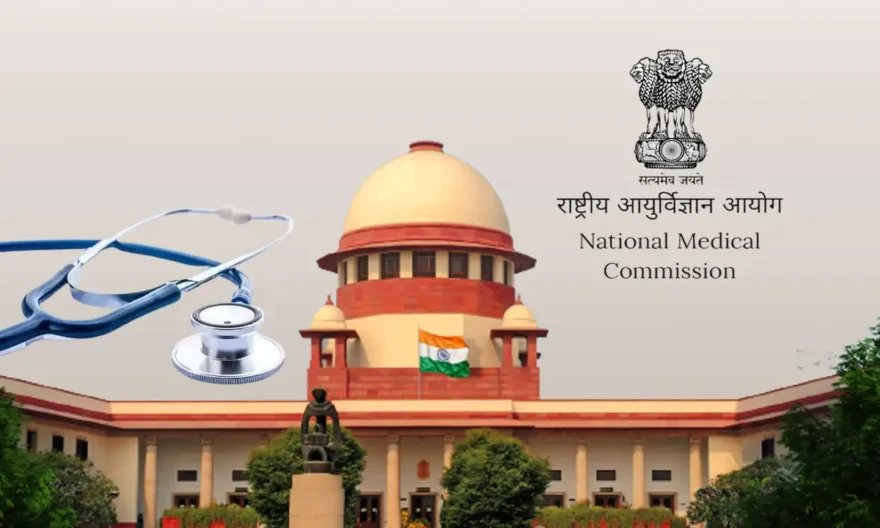
The National Medical Commission (NMC) informed the Supreme Court recently that a diagnosis of mental illness should no longer be a barrier to pursuing an MBBS course. It held that such aspirants may be considered for quota benefits in the future once more refined methods of disability assessment are established.
The NMC, responsible for regulating medical education in India, was instructed by the Supreme Court on May 18 to establish a panel of domain experts to review a request for developing new modes of disability assessment for students with mental illnesses, special learning disorders, and autism spectrum disorders to grant quotas for admission to the MBBS course.
A bench of Chief Justice D Y Chandrachud and Justices J B Pardiwala and Manoj Misra acknowledged the arguments presented by lawyer Gaurav Kumar Bansal, representing an MBBS aspirant. Bansal highlighted that several countries not only permit individuals with mental illnesses to pursue medical education but also grant them reservation in admissions.
The Top Court granted Bansal permission to amend the petition to challenge the NMC’s latest guidelines regarding the admission of individuals with mental illnesses to the MBBS course. The guidelines currently do not provide quota benefits under the Rights of Persons with Disabilities Act.
However, the court recognized that the NMC had established an expert panel and issued some guidelines after a comprehensive examination of the issue. The panel, consisting of eight experts, deliberated on the specific matter of admission to the MBBS course under the disabilities law concerning special learning disabilities, autism spectrum disorders, and mental illnesses.
In its report, the NMC stated, “On thorough consideration of the recommendations received from the expert members in … meetings, the Under Graduate Medical Education Board reaches to a conclusion that in respect of mental illness, ‘the diagnosis of Mental Illness can no longer be a bar for eligibility to pursue medical education (MBBS) provided the candidate falls in the merit list in competitive entrance examination ie. NEET-UG’.”
The NMC also noted, “Since the benefits of reservation/quota are not determinable under the present available methods of assessment hence the quoted italic statement in the earlier disability notification dated May 13, 2019 — ‘However the benefit of reservation quota may be considered in future after developing better methods of disability assessment’ — shall remain valid.”
The NMC explained that candidates claiming to have mental illnesses are currently considered under the “non-PWD” (outside the disabilities law) category for admission to the MBBS course.
The Supreme Court, after receiving the report, stated that it would consider the issue after a period of four weeks.
The case before the Supreme Court involved Vishal Gupta, who was denied reservation for admission to the MBBS course under the Rights of Persons with Disabilities Act because his mental disability was assessed at 55 percent, rendering him ineligible for medical college admission.
Under the Act, if the certifying authority determines that a person’s disability is not less than 40 percent, they are categorized as having “benchmark disability” and are ineligible for reservation in admission.
The Top Court emphasized that individuals with special learning disabilities and autism spectrum disorders should not be treated unfairly and denied quota benefits under the law. The court directed the National Medical Commission to consider the petitioner’s grievance as a representation and address it appropriately while dealing with regulations on graduate medical education.
Gupta’s petition argued that his mental illness disability, as certified by Lady Hardinge Medical College and Associated Hospitals, was 55 percent. He claimed discrimination, as authorities were refusing him the opportunity to pursue a medical science course due to his mental illness percentage exceeding 40 percent. Additionally, he was not receiving the benefit of the quota available to persons with disabilities under the law for MBBS aspirants like himself.
The petition requested a court order against the Centre, the NMC, and others, urging them to allow Gupta, who has a benchmark disability, to pursue a medical science course under the quota for persons with disabilities.




